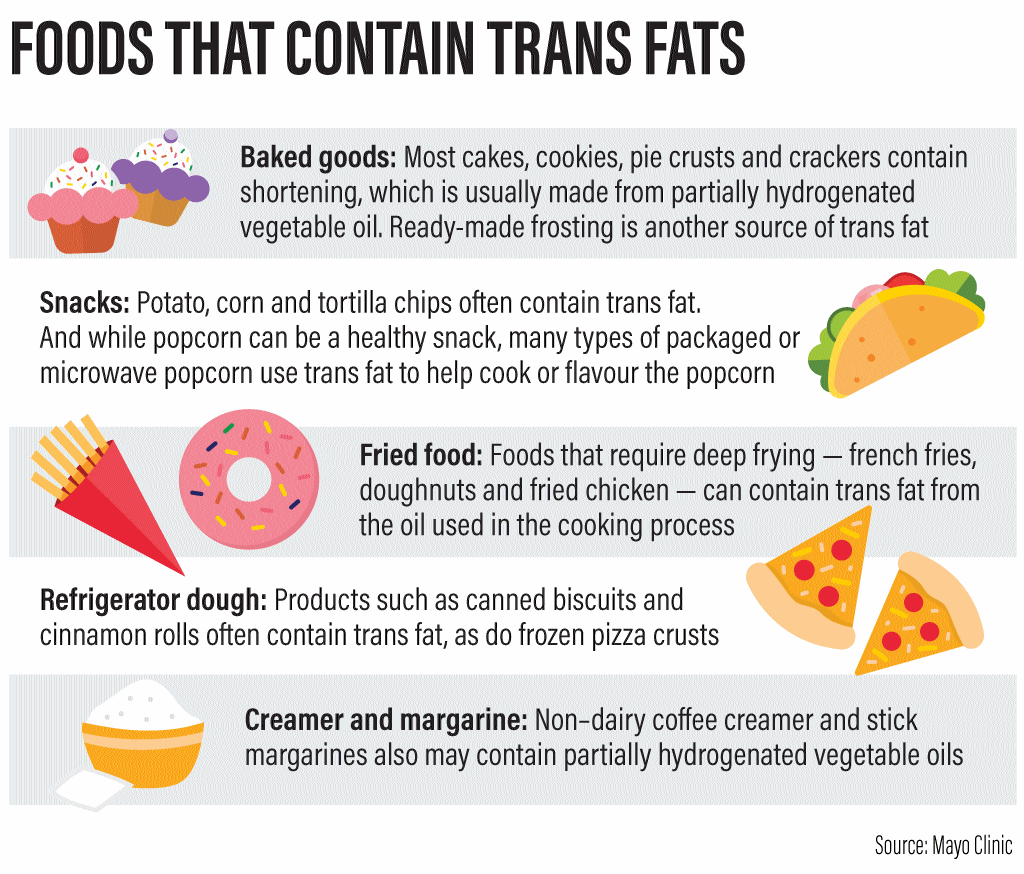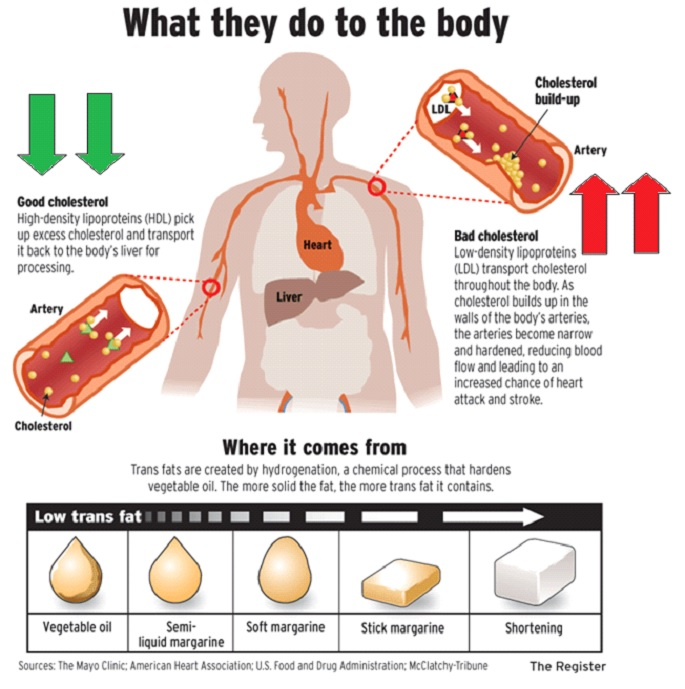
In News- Recently, the Food Safety and Standards Authority of India (FSSAI) has capped Trans Fatty Acids (TFAs) in food products.
Background:
- In 2011, FSSAI first passed a regulation that set a TFA limit of 10% in oils and fats.
- In 2015, it was further reduced to 5%.
- In December 2020, it had capped TFA in oils and fats to 3% for 2021 and 2% by 2022 respectively.
New Changes:
- As per the revised regulations, food products, in which edible oils and fats are used as an ingredient, shall not contain industrial TFAs more than 2% by mass of the total oils/fats present in the product, on and from 1st January, 2022.
- The decision was affected by an amendment to the Food Safety and Standards (Prohibition and Restriction on Sales) Regulations, 2011.
- The new rules apply to edible refined oils, vanaspati (partially hydrogenated oils), margarine, bakery shortenings, and other cooking media like vegetable fat spreads and mixed fat spreads.
- According to FSSAI, the 2% cap is considered to be the elimination of TFAs, which India will achieve by 2022, a year sooner than the World Health Organisation (WHO) deadline.
- Significance:
- The move will make a huge difference in the health harm caused by this unwanted ingredient.
- The move is a clear step in the right direction towards creating safer and healthier food systems.
Proposed Changes:
- Civil Society Organisations in India are pushing for a cap of 3% for 2021 and 2% for 2022 to be imposed not just on trans fats in oils and fats, but in “all” foods.
- However, a greater challenge will be the implementation as public health is a State subject.
- The FSSAI will need to pursue local governments to improve surveillance, an inspection of food premises, sampling of food products, regular training of officers, upgradation of food labs, etc.
Trans Fatty Acids:
- All natural fats and oils are a combination of monounsaturated, polyunsaturated and saturated fatty acids or TFAs.
- The human body needs the first two categories of ‘healthy’ fats as they are a significant source of energy, help absorb some vitamins and minerals and build cell membranes and the sheaths surrounding nerves.
- These fats are free-flowing, unlike TFAs, which are considered harmful as they clog arteries.
- There are two broad types of trans fats found in foods: naturally-occurring and artificial trans fats.
- Artificial trans fats, which are considered harmful, are created in an industrial process that adds hydrogen to liquid vegetable oils to make them more solid, increase their shelf life, and for use as an adulterant as they are cheap.
- Concerns:
- TFAs result in hypertension, heart attacks, and other cardiovascular issues.
- Cardiovascular diseases are the leading cause of death globally, causing over 1.8 crore deaths every year.
- The WHO estimates that over 5 lakh people with cardiovascular issues die globally every year due to the consumption of industrially produced TFAs.
- These are also associated with a higher risk of developing obesity, type 2 diabetes, metabolic syndrome, insulin resistance, infertility, certain types of cancers and can also lead to compromised fetal development.
- TFAs result in hypertension, heart attacks, and other cardiovascular issues.


https://www.ptcnews.tv/healthy-food-eating-system-trans-fat-heart-attack-en/
WHO Guidelines:
- In 2018, the WHO called for the global elimination of industrially-produced TFAs by 2023.
- It brought out a step-by-step guide called ‘REPLACE’ to help countries frame policies.
- Review dietary sources of industrially-produced trans fat and the landscape for required policy change.
- Promote the replacement of industrially-produced trans fat with healthier fats and oils.
- Legislate or enact regulatory actions to eliminate industrially-produced trans fat.
- Assess and monitor trans-fat content in the food supply and changes in trans fat consumption in the population.
- Create awareness of the negative health impact of trans fat among policy-makers, producers, suppliers, and the public.
- Enforce compliance with policies and regulations.
- This prompted accelerated action by member states and other stakeholders.
- Around 60 countries have introduced laws to protect people from TFAs by the end of 2021 however, more than 100 countries still need to take actions regarding this.
India’s Efforts by FSSAI:
- FSSAI is committed to reducing the industrially produced TFAs, in line with the objective to get Freedom from ‘Trans Fat: India@75’.
- Eat Right India Movement:
- It was launched by FSSAI in July 2018.
- Tagline: ‘Sahi Bhojan. Behtar Jeevan’.
- It aims to improve public health in India and combat negative nutritional trends to fight lifestyle diseases.
- It adopts a judicious mix of regulatory, capacity building, collaborative and empowerment approach to ensure that the food is good both for the people and the planet.
- Further, it builds on the collective action of all stakeholders (government, food businesses, civil society organizations, experts and professionals, development agencies and citizens).
- It is aligned to the National Health Policy 2017 with its focus on preventive and promotive healthcare and flagship programmes like Ayushman Bharat, POSHAN Abhiyaan, Anemia Mukt Bharat and Swachh Bharat Mission.
- Swastha Bharat Yatra:
- A Pan India Cycle rally, inspired by Mahatma Gandhi’s Dandi March and ‘Salt Satyagraha‘ of 1930.
- Heart Attack Rewind:
- It was launched by FSSAI in November 2018.
- The 30-second Public Service Announcement (PSA) under it was the first mass media campaign of its kind.
Previous article
Facts in News